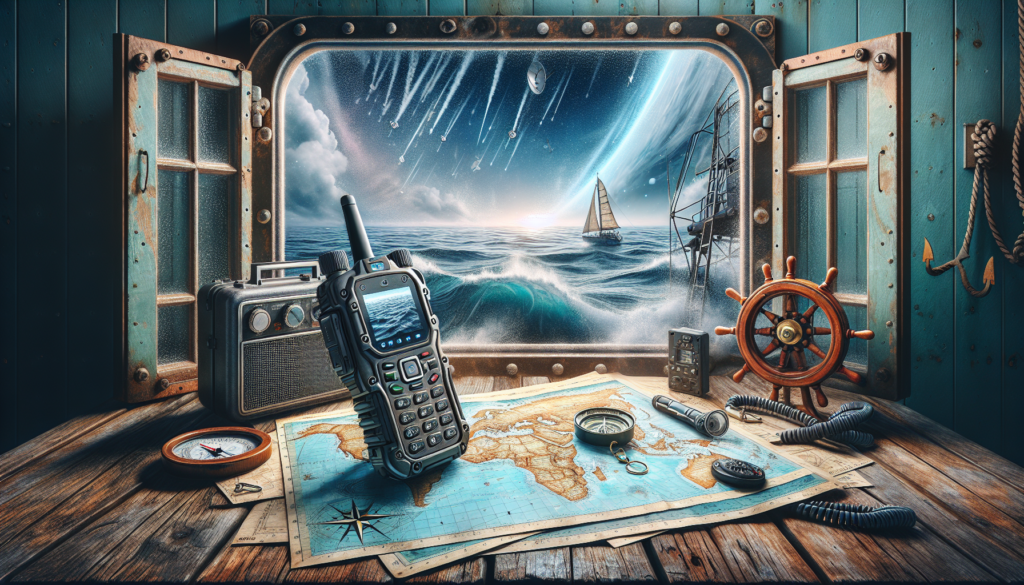Exploring the World of Marine Satellite Phones
Welcome aboard as we delve into the fascinating world of marine satellite phones. These cutting-edge devices have revolutionized communication at sea, providing sailors, fishermen, and marine enthusiasts with a lifeline to the outside world. From remote expeditions to emergency situations, marine satellite phones play a crucial role in ensuring connectivity and safety on the open waters.
The Evolution of Marine Satellite Phones
Marine satellite phones have come a long way since their inception. In the early days, sailors relied on traditional radio communication, which had limited range and reliability. The introduction of satellite phones transformed the maritime industry, offering a reliable means of communication even in the most remote locations.
One of the key milestones in the development of marine satellite phones was the launch of the first maritime satellite system in the 1980s. This system allowed sailors to make voice calls, send messages, and access weather information from anywhere in the world. Over the years, advancements in technology have led to the development of more sophisticated and versatile marine satellite phones, equipped with features such as GPS tracking, internet connectivity, and emergency SOS capabilities.
Applications of Marine Satellite Phones
The uses of marine satellite phones are diverse and far-reaching. One of the primary applications is for communication during long voyages at sea. Sailors use satellite phones to stay in touch with their loved ones, coordinate with other vessels, and receive important updates on weather conditions and navigation.
Another crucial application of marine satellite phones is in emergency situations. In case of a maritime accident or a medical emergency, satellite phones provide a vital link to emergency services and rescue teams. The ability to make distress calls and send out SOS signals can be a lifesaver in critical situations.
Furthermore, marine satellite phones are indispensable for commercial fishing operations. Fishermen use satellite phones to communicate with their crews, track fishing grounds, and coordinate with buyers and suppliers. This real-time communication is essential for optimizing operations and ensuring the efficiency of the fishing business.
The Technology Behind Marine Satellite Phones
Marine satellite phones operate on a network of satellites that orbit the Earth, transmitting signals to and from the devices. These satellites are equipped with advanced communication systems that enable seamless connectivity across vast distances. The signals are relayed through a network of ground stations, which ensure a stable and reliable connection at all times.
One of the key technologies used in marine satellite phones is Global Navigation Satellite System (GNSS), which provides accurate positioning information for navigation purposes. This technology allows sailors to pinpoint their exact location, track their route, and avoid potential hazards along the way. In addition to GNSS, marine satellite phones also utilize satellite constellations such as Inmarsat, Iridium, and Thuraya to ensure widespread coverage and global connectivity.
Benefits of Marine Satellite Phones
The benefits of marine satellite phones are manifold, making them indispensable tools for maritime activities. One of the primary advantages is their global coverage, which ensures connectivity even in remote regions where traditional communication networks are unavailable. This wide-reaching coverage allows sailors to stay connected at all times and seek assistance in case of emergencies.
Another key benefit of marine satellite phones is their reliability. Unlike traditional radio communication, which is prone to interference and signal loss, satellite phones offer clear and consistent communication regardless of the weather conditions or geographical location. This reliability is essential for maintaining communication in challenging maritime environments.
Additionally, marine satellite phones offer a range of features that enhance safety and convenience for users. From built-in GPS tracking to emergency SOS buttons, these devices are equipped with functionalities that can save lives in critical situations. The peace of mind that comes with knowing help is just a call away is invaluable for sailors embarking on long journeys at sea.
Challenges and Controversies
While marine satellite phones offer numerous benefits, they also come with their own set of challenges and controversies. One of the main concerns is the cost associated with using satellite communication services. The high subscription fees and call charges can be prohibitive for some sailors, especially those on a tight budget. However, the convenience and safety that satellite phones provide often outweigh the cost considerations for many users.
Another challenge is the potential for signal interference and network congestion in crowded maritime areas. When multiple vessels are using satellite phones simultaneously, there may be issues with signal quality and bandwidth availability. To address this issue, satellite service providers are constantly working to optimize their networks and improve the efficiency of communication at sea.
Future Trends in Marine Satellite Phones
The future of marine satellite phones looks promising, with ongoing advancements in technology paving the way for more innovative and efficient communication solutions. One of the key trends is the integration of satellite phones with other maritime systems, such as Automatic Identification System (AIS) and Electronic Chart Display and Information System (ECDIS). This integration allows for seamless data exchange and enhanced situational awareness for sailors navigating the seas.
Another emerging trend is the development of satellite phones with enhanced multimedia capabilities, such as video calling and streaming. These features enable sailors to communicate more effectively and share real-time information with their peers, enhancing collaboration and decision-making on board. Additionally, advancements in satellite technology are leading to smaller, lighter, and more portable satellite phones that are easier to carry and use on marine vessels.
Expert Opinions
According to marine industry experts, satellite phones have become indispensable tools for sailors and fishermen navigating the world’s oceans. Captain John Smith, a veteran sailor with over 30 years of experience, states, “Satellite phones have revolutionized communication at sea, providing us with a lifeline to the outside world when we need it the most. The peace of mind that comes with knowing help is just a call away is invaluable for anyone embarking on long voyages.”
Dr. Emily Johnson, a marine biologist conducting research expeditions in remote locations, adds, “Satellite phones have been instrumental in our work, allowing us to stay connected with our research team and share data in real-time. The ability to communicate effectively at sea has transformed the way we conduct our research and made our expeditions more productive and efficient.”
Conclusion
To wrap things up, marine satellite phones are essential tools for communication and safety at sea. These devices have revolutionized the way sailors, fishermen, and marine enthusiasts stay connected in remote and challenging environments. With their global coverage, reliability, and advanced features, marine satellite phones provide a lifeline to the outside world, ensuring connectivity and peace of mind for users on the open waters.
As technology continues to evolve, marine satellite phones will play an increasingly important role in maritime operations, offering innovative solutions for communication and navigation at sea. The future holds exciting possibilities for these devices, with ongoing advancements in satellite technology shaping the way we communicate and navigate the world’s oceans.
Whether you’re a seasoned sailor, a commercial fisherman, or an adventurous explorer, having a marine satellite phone on board can make all the difference in ensuring your safety and connectivity on the high seas.



